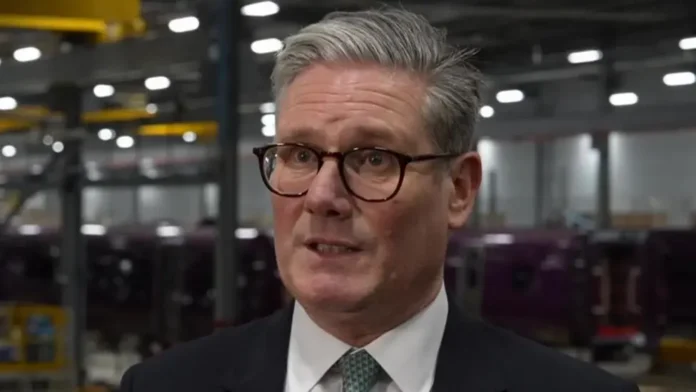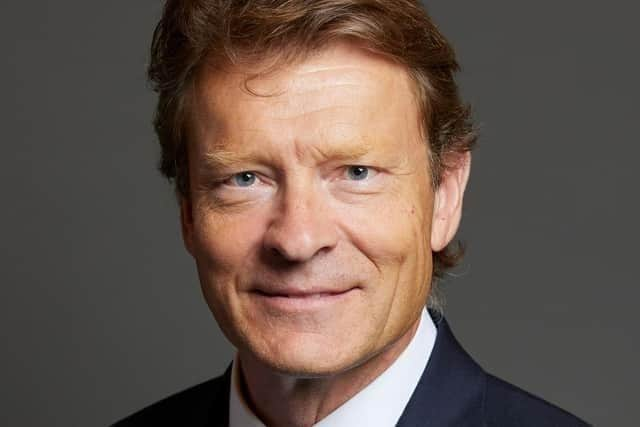Passengers Can Expect Better Bus Services In Lincolnshire With A £4.3 Million Injection
Lincolnshire transport service has had huge problems in recent years. Now, passengers are hoping there will be a huge improvement.
There have been serious problems in Lincolnshire with the bus service in recent years. Last year saw bus services in Skegness, Boston, Grantham, and Lincoln cancelled. But now, things could be set to be improved with £4.3 million injection from the scrapped HS2 fund.
Lincolnshire County Council has been allocated £4.3 million from the scrapped HS2 fund to improve its bus services. This funding will bring about a positive change in the transportation infrastructure and benefit the local community.
The aim is to enhance connectivity, increase accessibility, and provide a more efficient and reliable public transportation system for residents and visitors alike.
This allocation of funds is a major win for Lincolnshire, as it will help address the existing challenges in the transportation sector and pave the way for a more sustainable future.
The improved bus services will not only benefit the local community but also contribute to reducing traffic congestion and promoting eco-friendly modes of transportation.
The £4.3 million will allow Lincolnshire to invest in upgrading its bus infrastructure. This includes improving bus stops, introducing state-of-the-art vehicles, and implementing advanced technologies to enhance the overall efficiency of the bus network.
The aim is to provide a seamless and comfortable experience for passengers, encouraging more people to choose public transportation as their preferred mode of travel.
One of the key aspects of the infrastructure upgrade will be the improvement of bus stops throughout Lincolnshire. This will involve the installation of modern shelters, seating arrangements, and real-time information displays.
The upgraded bus stops will provide a more pleasant waiting experience for passengers, ensuring their safety and convenience.
The funding will enable Lincolnshire to introduce a fleet of state-of-the-art buses equipped with the latest technology and environmental features. These buses will offer improved accessibility, including designated spaces for individuals with disabilities and other special needs.
The introduction of modern buses will not only enhance the overall travel experience but also contribute to reducing carbon emissions, supporting the county’s commitment to environmental sustainability.
To ensure smooth operations and efficient scheduling, Lincolnshire will leverage advanced technologies in its bus services. This includes implementing real-time tracking systems, automated ticketing processes, and integrated communication platforms.
These technological advancements will enable passengers to have up-to-date information regarding bus arrival times and enable seamless connectivity with other modes of transportation.
The investment in bus services will significantly improve connectivity within Lincolnshire and neighbouring regions.
With the enhanced bus network, residents and visitors will have greater accessibility to key destinations, including employment centres, educational institutions, healthcare facilities, and leisure attractions. This will facilitate easier commutes, reduce reliance on private vehicles, and promote a more sustainable and inclusive transportation system.
One of the primary goals of the funding is to increase the frequency and coverage of bus services across Lincolnshire.
This will ensure that more areas within the county are well-connected, allowing individuals from various communities to access essential services and amenities. The improved frequency of buses will also reduce waiting times, making public transportation a more viable and attractive option for daily commuting.
The investment will enable the extension of bus operating hours, ensuring that residents have access to transportation even during late hours.
This will benefit individuals working night shifts, students attending evening classes, and those wanting to enjoy the county’s nightlife. By extending the operating hours, Lincolnshire aims to cater to the diverse needs of its population and enhance the overall quality of life.
The improved bus services in Lincolnshire will have a positive impact on the environment by reducing the number of private vehicles on the road.
Increased utilization of public transportation will lead to a reduction in carbon emissions, contributing to the county’s efforts to combat climate change and improve air quality. Additionally, with more people opting for buses, there will be a decrease in traffic congestion, leading to smoother traffic flow and reduced travel times.
Transport Secretary Mark Harper said: “Buses are the most popular form of public transport, which is why we are continuing to back our buses with record high levels of funding – supporting vital bus services and offering affordable travel for passengers.
“This increase in funding to deliver more reliable, frequent and affordable local bus services – and to extend the £2 bus fare cap – has only been possible with the redirected HS2 funding secured by this government making the right long-term decisions for a brighter future.”
The investment in better bus services will have far-reaching economic and social implications for Lincolnshire.
Improved connectivity will attract businesses, investors, and tourists, boosting the local economy and creating job opportunities. Additionally, enhanced accessibility to education, healthcare, and recreational facilities will improve the overall well-being of residents, fostering a stronger sense of community and inclusivity.
Cllr Richard Davies, executive member for highways and transport said: “This money is a very welcome addition to bus provision and promotion in our county. A previous award was used to put in place our £2 single journey fare cap scheme, which is active on every Call connect bus journey in Lincolnshire.
“We will ensure that this latest funding, which we will spend in line with the proposals set out within our BSIP plan, will be a key part of our continuing work to encourage bus usage to for many people as possible.”


